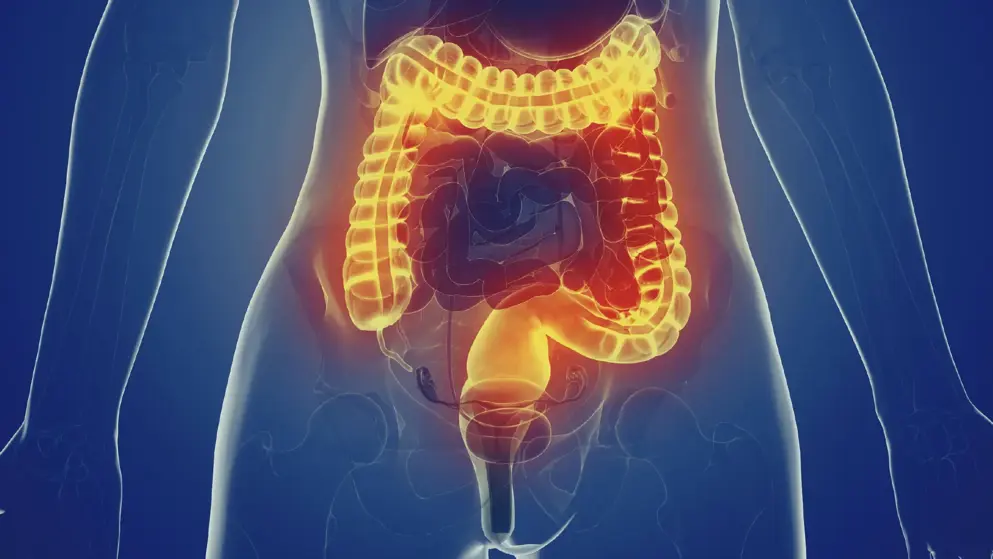
Mirikizumab up-regulates genes associated with mucosal healing in ulcerative colitis for up to one year in phase II study.- Eli Lilly.
These gene transcript changes, which were unique among those who responded to mirikizumab compared to placebo, were associated with mucosal healing, indicating that mirikizumab affects a distinct molecular healing pathway, compared to the spontaneous healing that occurred among those who responded to placebo.
Mirikizumab is being studied in Phase III trials for UC and Crohn's disease (CD), two forms of inflammatory bowel disease that can cause serious and debilitating symptoms, and disruptions in daily life. A separate analysis of patients with moderate to severe UC evaluated meaningful improvement of bowel urgency, a common symptom of UC that is associated with higher levels of disease activity, decreased work productivity and worse quality of life. These results are being presented virtually at the Congress of the European Crohn's and Colitis Organisation (ECCO), July 8-10, 2021.
Mirikizumab Showed Early and Sustained Gene Expression Changes Associated with Mucosal Healing in UC for Up to One Year : In a previously-published Phase II study evaluating patients with UC, mirikizumab down-regulated several gene transcripts associated with inflamed mucosa and up-regulated gene transcripts correlated with healthy mucosa and markers of functional healing after 12 weeks, as defined by clinical disease indices of endoscopy and histology. In this analysis, a set of differentially-expressed gene transcripts were identified in patients who responded to mirikizumab that were not found in those who responded to placebo at 12 weeks. Of the modulated genes, 71% (n=63) were present only in patients who responded to mirikizumab, 5.6% (n=5) were present only in those who responded to placebo, and 23.6% (n=21) were present in both groups. Effect size estimates were also examined to account for differences in sample size and associated power between treatment groups.
The set of gene transcripts regulated by mirikizumab correlated with UC disease activity indices, demonstrating consistency of these molecular changes across symptomatic, clinical, endoscopic and histologic indices of UC disease activity. The results observed at 12 weeks were maintained for up to one year in patients receiving mirikizumab.
Patients with UC Reported on Definition of Meaningful Change in Bowel Urgency : Bowel urgency, the sudden or immediate need for a bowel movement, is one of the most distressing symptoms experienced by patients with UC. In this qualitative study of patients with moderate to severe UC, patients defined both bowel urgency severity and what would be a meaningful improvement in bowel urgency based on an 11-point numeric rating scale (NRS). In this study, half of patients with UC (50%, n=10) reported that a 1-point change on the urgency NRS would be a meaningful change, indicating improved emotional well-being and greater confidence to leave the home or do their work. A quarter of respondents (25%, n=5) indicated that a 2-point improvement in the urgency NRS was required to be considered meaningful, and another 25% of respondents (n=5) noted that a 3-point change or more was needed to achieve improvements in quality of life. Importantly, among the 75% of patients who endorsed a 1 to 2-point change in urgency NRS, initial scores on the urgency NRS ranged from 2 to 9, indicating that this amount of change was meaningful regardless of the severity of an individual's bowel urgency.
About The Studies : Mirikizumab-Induced Transcriptome Changes in Patient Biopsies at Week 12 Are Maintained Through Week 52 in Patients with Ulcerative Colitis : Patients who achieved clinical response at 12 weeks, as measured by a decrease in 9-point Mayo subscore (rectal bleeding, stool frequency, endoscopy) of greater than 2 points and greater than 35% from baseline, with either a decrease of rectal bleeding subscore of greater than 1 or an RB subscore of 0 or 1) continued onto maintenance mirikizumab treatment. Patients given placebo in induction who achieved clinical response continued on placebo in the maintenance period. In this study, colonic biopsies from 52 patients were obtained at Weeks 0, 12 and 52 from the most affected area greater than 30 cm from the anal verge (mirikizumab, n=31, placebo, n=7). Of those patients, 31 were 200 mg mirikizumab responders and seven responded to placebo. Transcript changes at Week 12 from baseline in the placebo and mirikizumab arms were clustered into differentially expressed genes using the Bayesian Limma R-package. Differentially expressed genes which maintained their Week 12 expression level through Week 52 in both the placebo and mirikizumab arms were identified and designated as similarly expressed genes. Overall, the safety profile at 52 weeks was consistent with that of mirikizumab in studies of UC and with the class.
A Qualitative Study Exploring Meaningful Improvement in Bowel Urgency among Adults with Moderate to Severe Ulcerative Colitis : In this qualitative study assessing meaningful improvement in bowel urgency based on a NRS, in-depth interviews were conducted in the United States with 20 adults with clinician-confirmed moderate to severe UC. Using an 11-point NRS developed specifically to assess bowel urgency severity, participants were asked to define levels of bowel urgency (where 0=no urgency and 10=worst possible urgency). Participants were also asked to describe what would be a meaningful improvement based on how this change would impact their daily life.

